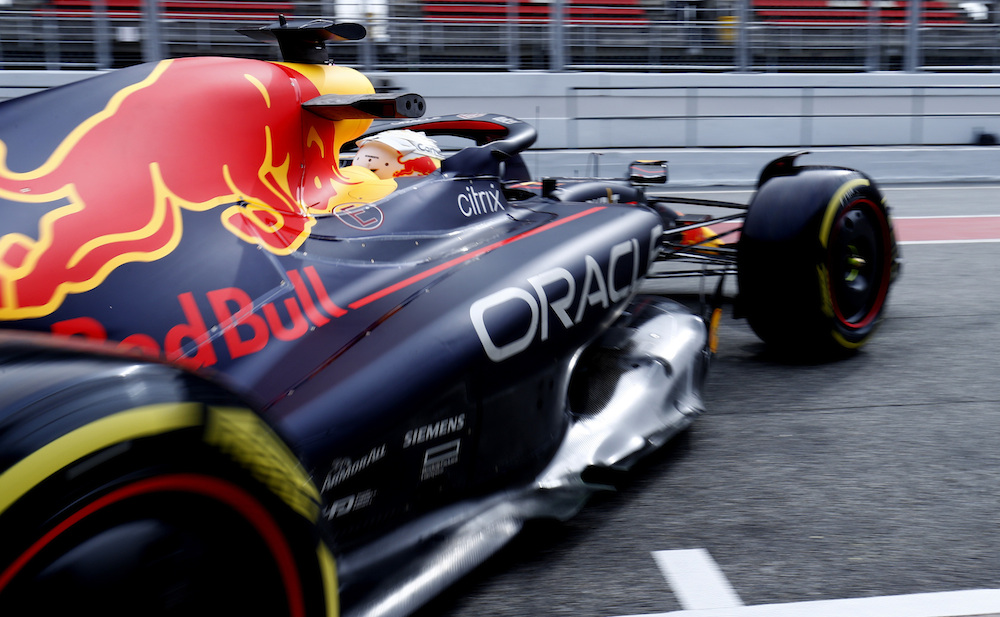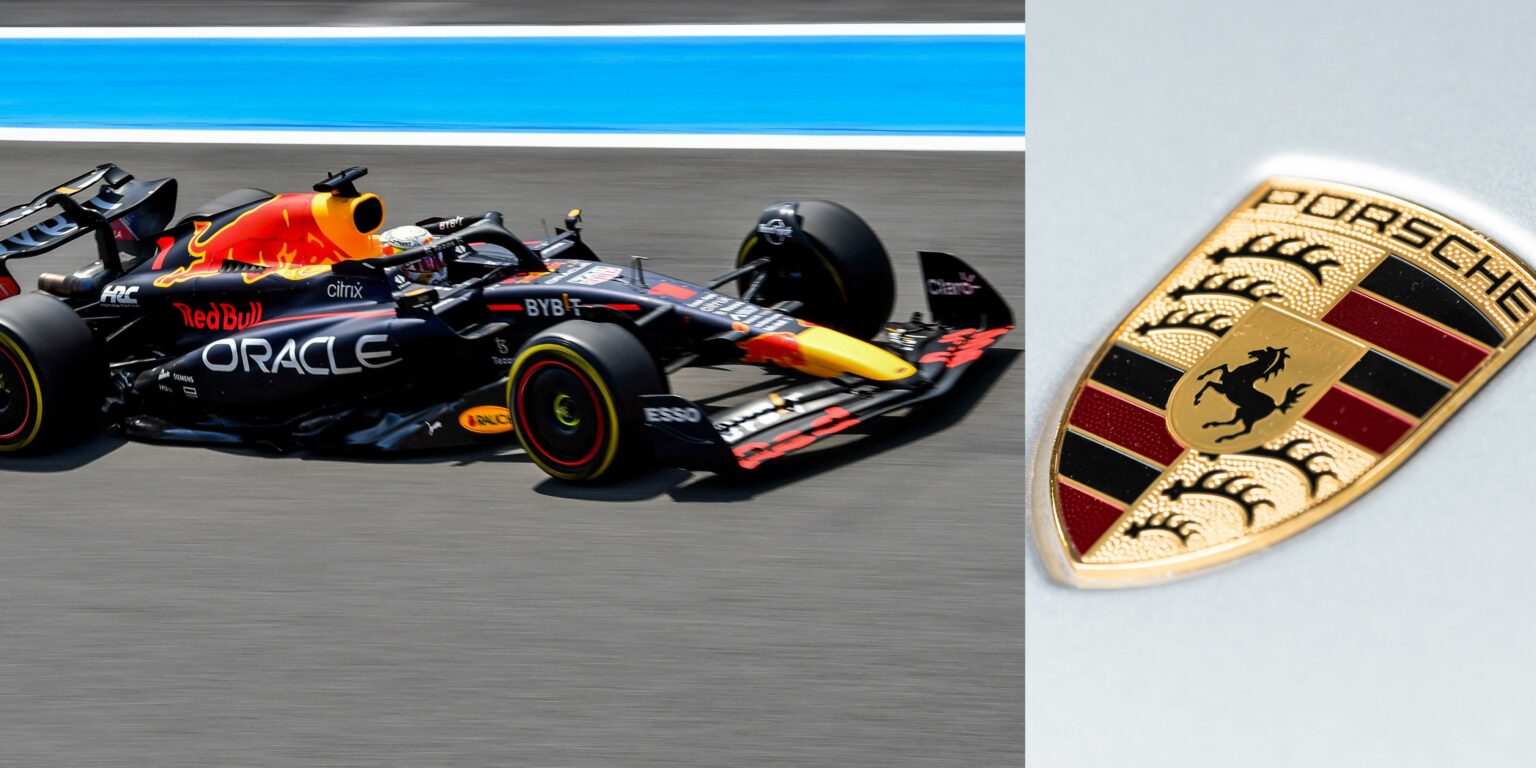It would be a relatively stretched process for Porsche to buy a stake in Red Bull.

Since meeting with F1 executives during the Italian Grand Prix in 2017, Porsche has been pondering a comeback as an engine supplier. Porsche is planning to acquire 50% of Red Bull Technology, according to a document published earlier this week by the Morocco Conseil de la Concurrence, the national government that mandates applications are subject to mandatory publicity once granted.
This might be the first indication of a backup plan for Red Bull owner Dietrich Mateschitz and pave the way for powertrain cooperation starting in 2026 as well as the partial investment in the racing team. Red Bull and Porsche’s partnership was supposed to be revealed at this month’s Austrian Grand Prix, but it was postponed due to a delay in the FIA’s acceptance of F1’s engine regulations for 2026.
The rumoured 10-year Porsche-Red Bull agreement was expected to be revealed at the beverage company’s home race, the Austrian GP, earlier this month. The Moroccan paper, on the other hand, specifies that the partnership will become public on August 4.
Audi is anticipated to own a team, while Porsche has long been anticipated to work with Red Bull as an engine supplier. The favourites are Swiss-based Sauber, which is presently competing as Alfa Romeo. Both are, however, awaiting the completion of the 2026 engine rules, which have often been postponed due to disagreements among stakeholders about the specifics of the standards.
In addition to switching to 100% sustainable fuel, the 2026 engine standards will see an increase in the electrical power produced by the hybrid component of the power unit. The intricate MGU-H technology, which is used on current F1 power units to recover energy from the turbocharger of the V6 engine and counteract turbo lag, won’t be used. The 2026 power unit regulations also include an engine development cost cap in an effort to lower the expense of F1 technology.

Porsche and Audi are reportedly only interested if the MGU-H is dropped, there is a stronger focus on sustainable fuels, and there is a substantial enough reset to make them competitive.
Following Honda’s decision to leave Formula One at the conclusion of the 2021 season as an engine supplier, Red Bull established its own powertrain business last year. Honda is still the manufacturer of Red Bull’s engines, although they go under the name Red Bull Powertrains, or RBPT. From 2026 on, Red Bull had always intended to produce its own engines at its Milton Keynes RBPT facility, and it now appears that it will do so in collaboration with Porsche.
F1 is also dedicated to introducing entirely sustainable synthetic fuels that emit just the amount of carbon removed from the environment during their manufacturing process, making them carbon-neutral throughout their entire life cycle. The 1.6-litre V6 turbo hybrid power unit will still have the same basic architecture; however, a new energy-recovery system will provide a larger share of the engine’s total power output.
By removing the complex MGU-H, the hybrid component that recovers energy from the turbo, the hybrid system is made simpler. The finer points of the regulations, such as how much assistance will be provided to new producers to get up to speed and the financial restrictions on design and operation, have not yet been decided.
Porsche is anticipated to collaborate with the newly established Red Bull Powertrains department to create a new engine for the 2026 regulations. Porsche will contribute significant funding and technical know-how. Red Bull is considered to be dedicated to the sport for at least the rest of this decade and the alliance is not the start of a departure strategy for Red Bull from F1.
Porsche can now compete against Honda because of their absence, although Honda could make a comeback in 2026. Fans and automakers who want to be in front of them are attracted by the sport‘s rising popularity.













